Wilderness First Aid is a vital skill for any backcountry travel. It is highly recommended by the BSA and required by many high adventure camps that you have at least 2 or 3 people in your crew trained and current in Wilderness First Aid.
The Mount Baker Council takes safety and Wilderness First Aid training serious. Our cadre of professional instructors and medical providers have decades of wilderness and scouting experience. We have cared for victims in the backcountry, in remote settings around the world, in ambulances and helicopters, on the battlefield and of course at scout camp and on scout outings.
Our Wilderness First Aid Program teaches how to approach an emergency situation and how to treat the injured and sick based on up-to-date protocols, evidence based medicine and real life experiences.

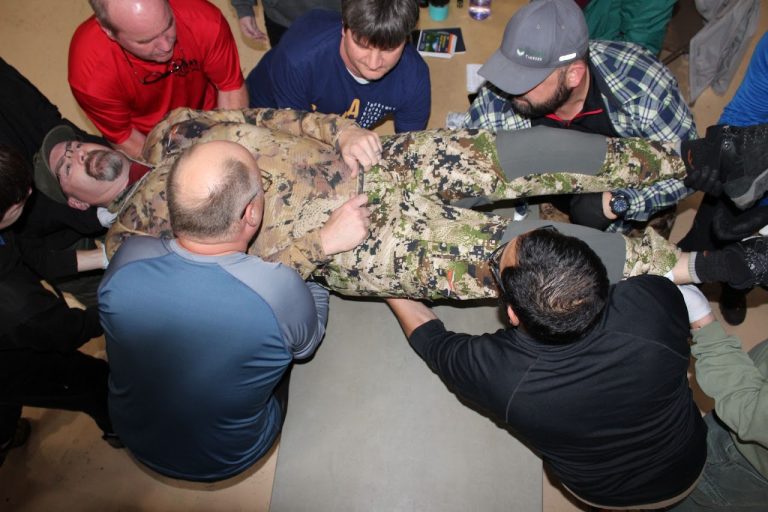
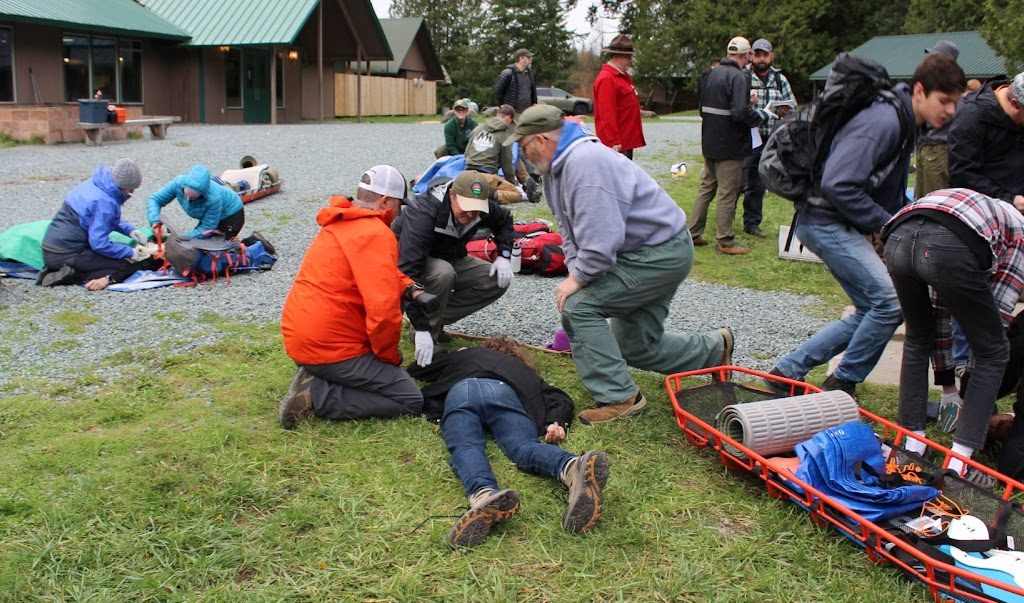
Mount Baker Council is offers a 16-hour Wilderness and Remote First Aid course certified by the Emergency Care & Safety Institute (ECSI) in the Spring and Fall of each year.
Our 16+ hour course is a split between classroom instruction and hands on training. Course material is based on up to date current medical practices, current wilderness medical guidelines and real world experience. This class is fast paced and geared for adult audiences.
Expect to be challenged and take away valuable skills after completing our course.
This course meets the wilderness first aid requirement for units trekking at National High Adventure bases (Philmont, Sea Base, Northern Tier and The Summit) and for other backcountry outings. It is appropriate for Scouts and Scouters who want to become better prepared for emergencies. It also fulfills the core first aid requirement for the Venturing Ranger Award.
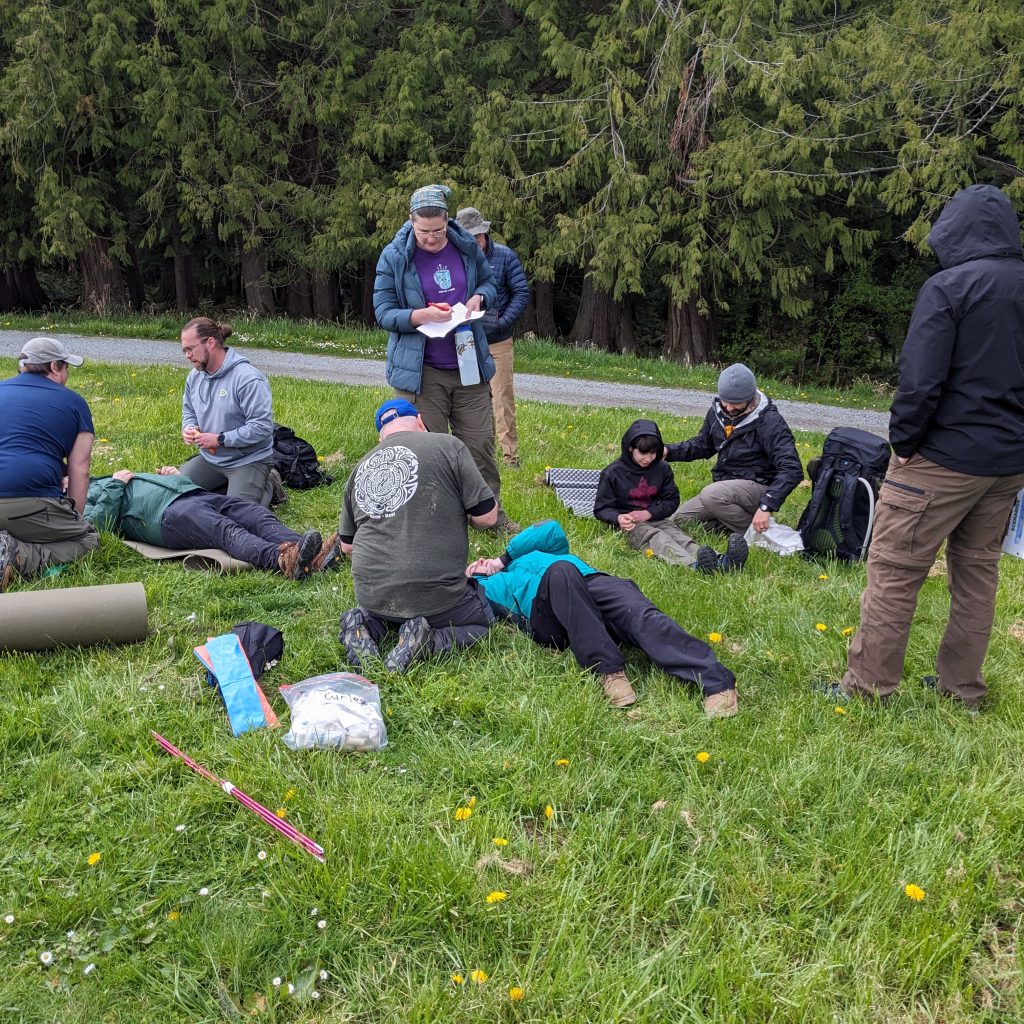
Submit the following documentation as part of registration:
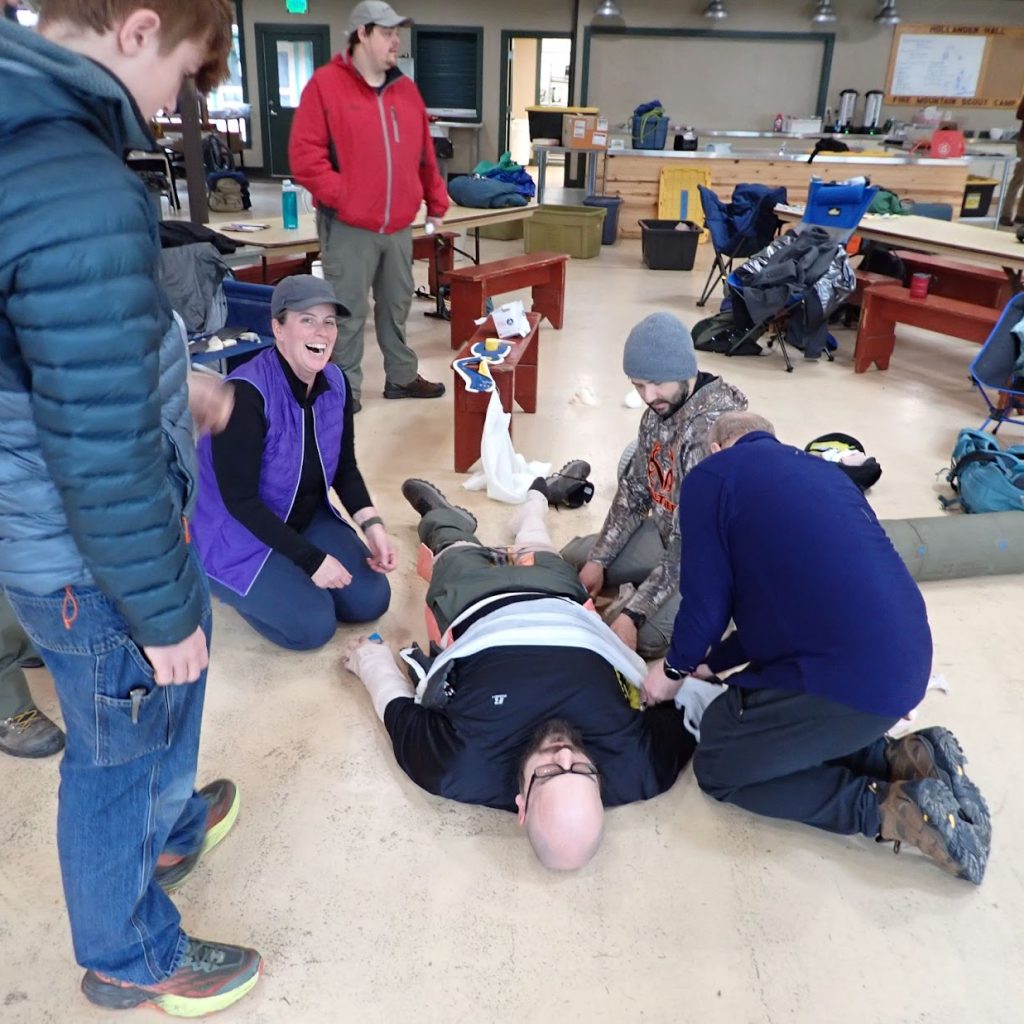
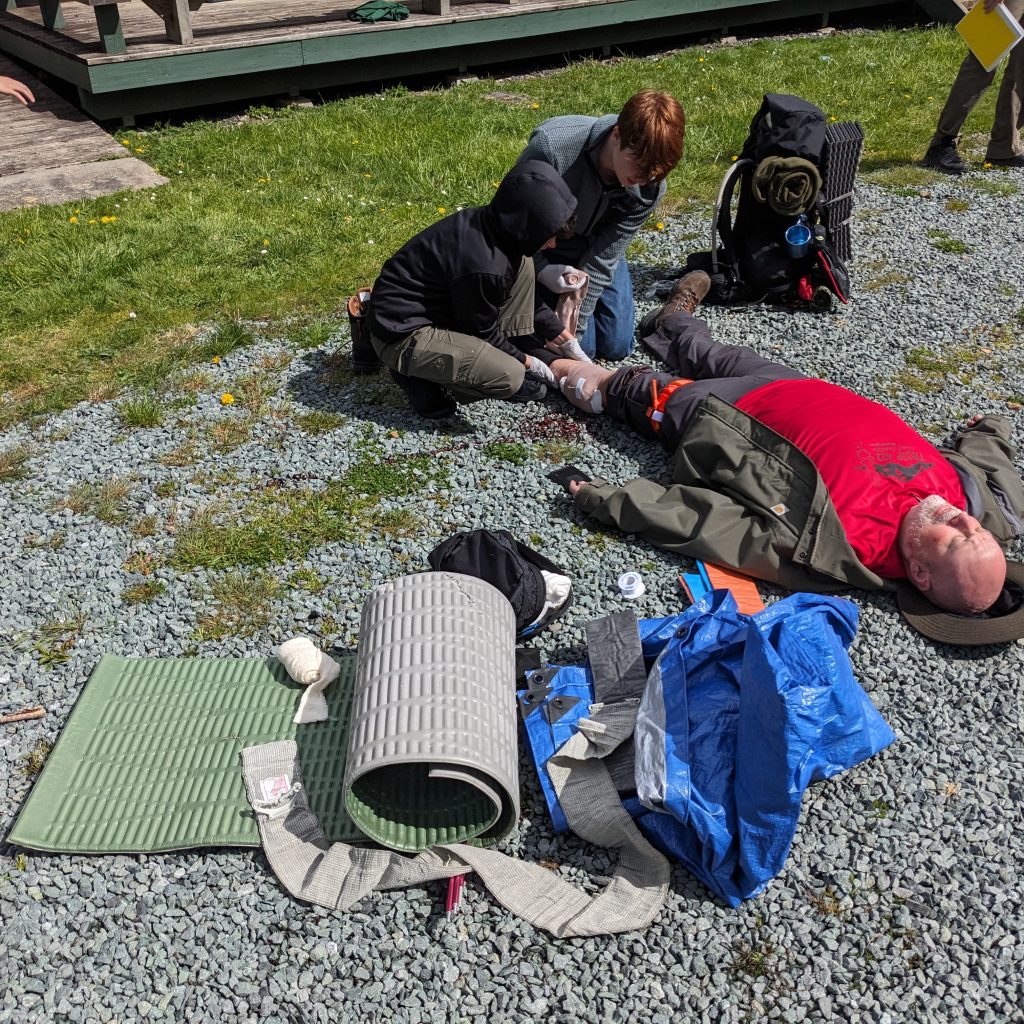
Wilderness First Aid is part of our Wilderness Adventure Training Series intended to better prepare scouts and units for adventures in the backcountry.

Our overnight courses have an optional Wilderness Survival Program. We cover the basics of surviving the unexpected night out in the wilderness. This course is intended for adults but more mature scouts can also attend.
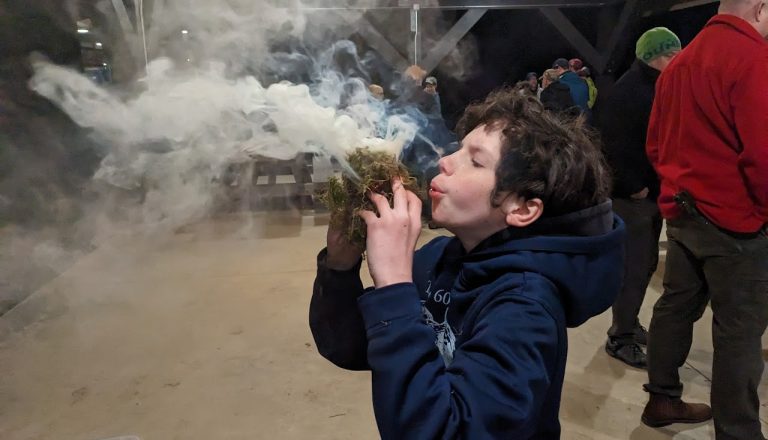
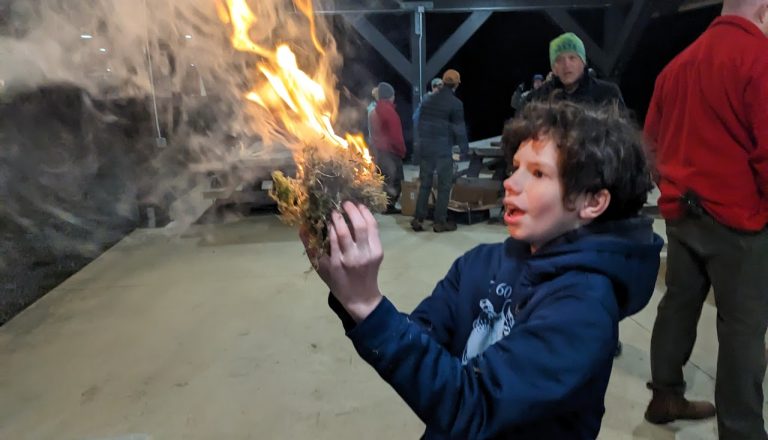
Our Spring and Winter Wilderness First Aid Courses generally includes an optional Survival Module.
When dealing with injuries in the backcountry, your daytrip may unexpectedly turn into an overnight survival situation should someone in your crew become injured or if the weather turns for the worse. Learn the priorities of survival and how to survive the unexpected night out.
Beyond the basics of survival, we teach advanced knife skills needed for shelter construction and for fire building. We also teach participants advanced fire starting skills, to include the use of a cold, wet or empty lighter, ferrorod skills, true flint and steel fire starting, and friction fires. We also discuss various fire starting resources you can harvest in our local environment.
This optional module is often the most popular part of our Wilderness First Aid Program.


The BSA covers very basic knife skills that center around safety. These are important, but in order to unlock the potential of your knife, it is important to master a few advanced knife techniques.
When building survival shelters, a knife will allow you to cut tree limbs and small trees needed for your shelter’s core structure. Many shelters can be made without cordage, with the right combination of tree limbs and the use of your knife. Once you have the basic frame of your shelter constructed, use your knife to process available foliage and turn it into water repelling and insulating layers.
A knife is vital for processing fuel. Use your knife to get the to the dry center for wood and turn large pieces of wood into kindling, wispies, shavings and feathersticks. A knife can also be used to fluff tinder so they can be easily ignited with your ferrorod. Not only can the back of a knife be used to strike a ferrorod, some knives can be used with flint or quartz to create a spark for ember fires, and we’ll show you how.
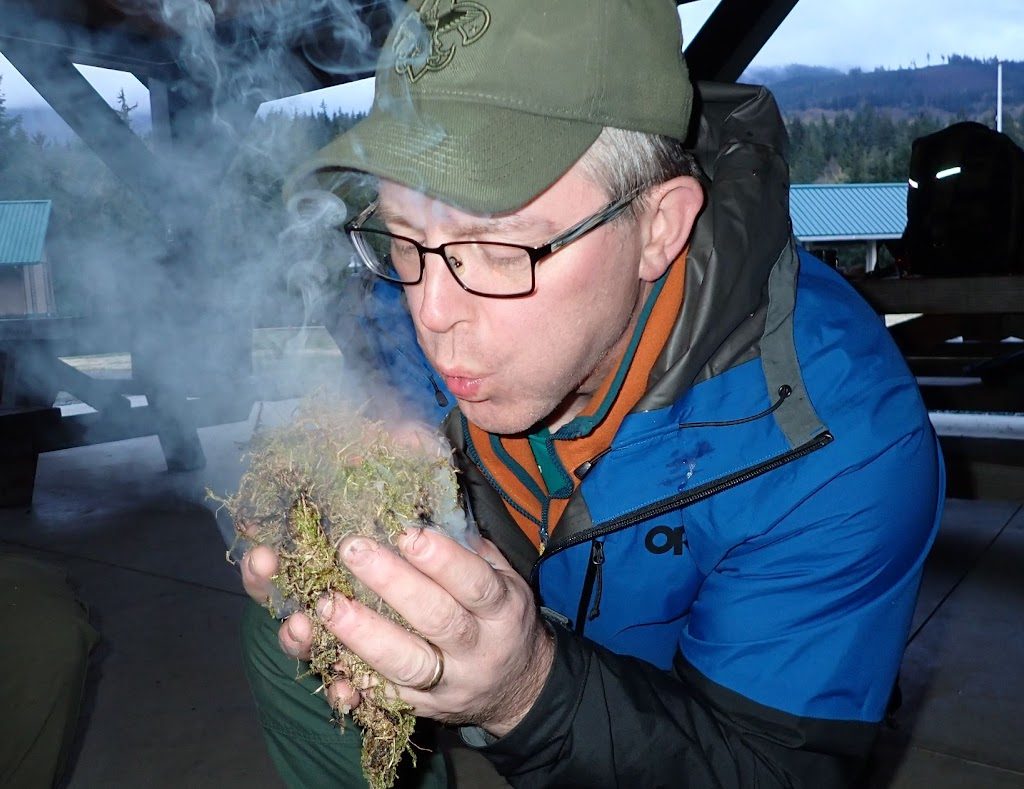
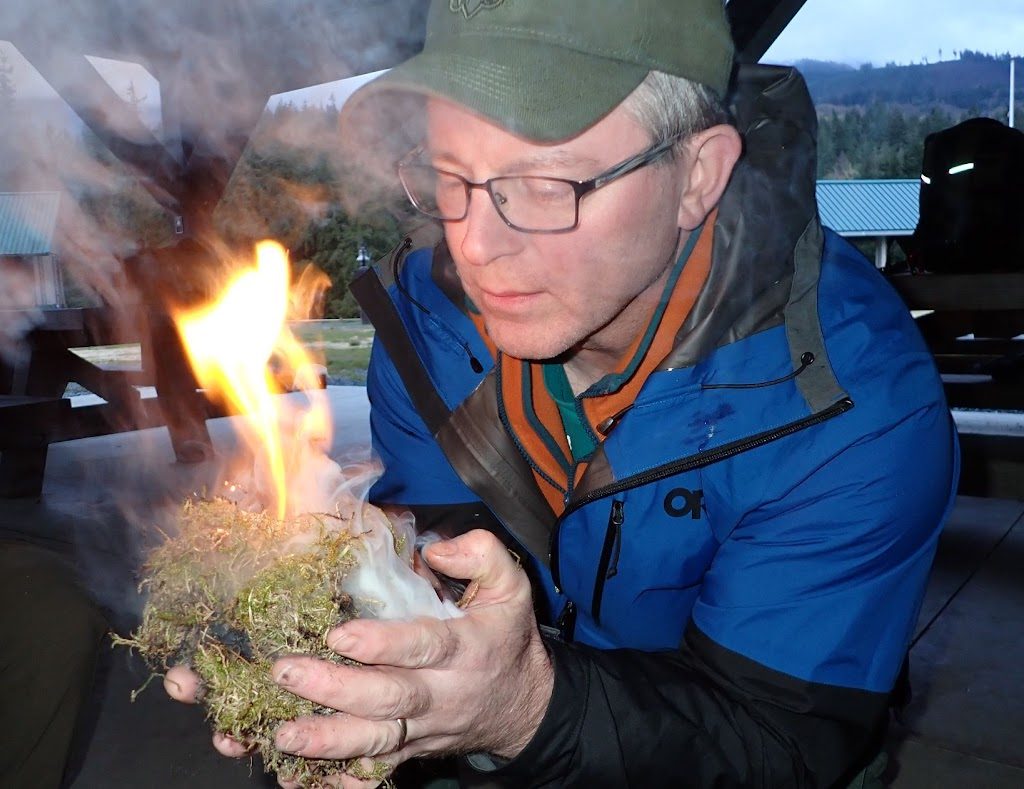

With adventure, fun and discovery at every turn, Scouting makes the most of right now.
